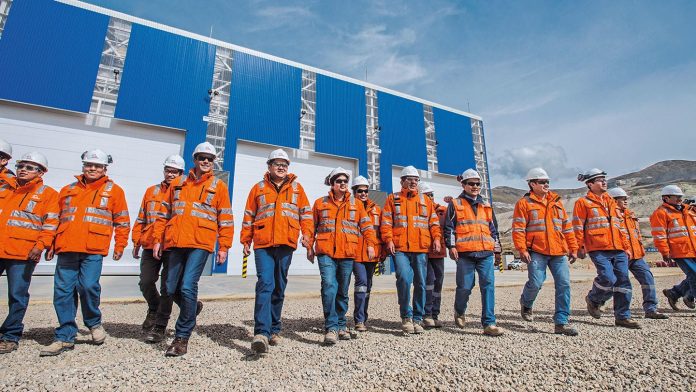The mining industry continues to recruit operators and vendors to deploy new industrial LTE and 5G networks on the promise of industrial change. Minera Las Bambas in Peru, the ninth largest copper mine in the world, is the latest to make the call, appointing Telefónica and Nokia to deploy a private mobile broadband network and ‘digitise’ its operations.
Telstra and Ericsson announced a deal earlier this week with Perth-based mining and metals company South32 to deploy “one of the largest underground mining LTE networks in the world”. Telstra has also announced a deal for private LTE with a gold mine in Papua New Guinea, and Ericsson has teamed up with Canadian systems integrator Ambra Solutions to sell private LTE and 5G networks to mining companies.
Meanwhile, British mining company Anglo American has announced in recent weeks it will expand its coal operations in Australia with “one of the most technologically advanced underground mines in the world”, at a projected cost of around $226 million.
Telefónica’s deal with Minera Las Bambas covers the design and build of a private LTE network at its site in Peru, which is 4,600 meters above sea level, plus a review of mining applications to be migrated on to the new network. The contract includes planning the site’s capacity and technical support for five years.
Nokia will provide base stations, technical support and training services, it said. The new network will allow Las Bambas to deploy additional safety solutions, including push-to-talk and push-to-video services, and reduce operating costs, compared with its old Tetra system, according to Nokia.
“Automation relies on the ability to sense, analyse and act. To do so, these industries will need to connect all sensors, machines and workers in the most flexible way — and for that they need business and mission-critical wireless networking solutions such as private LTE,” said Nokia in a statement.
Miguel Canz, regional technology manager at Minera Las Bambas, said: “This will enable a series of new automation solutions, increasing productivity in our mining operation as well as supporting more advanced automation to improve worker safety.”
Dennis Fernández, vice president for B2B at Telefónica Peru, said: “We’re working closely to provide an end-to-end connectivity solution for its operation that allows it to focus on its core business, while we care for the connectivity.“
Osvaldo Di Campli, head of Latin America for Nokia, said: “This private LTE network will allow the Las Bambas mine to increase productivity and automation and, in doing so, embrace the ‘fourth industrial revolution’.”
Nokia claims it has “over 80 large enterprise customers” are deploying private LTE. In January, driverless trucks from equipment manufacturer Komatsu passed qualification to run on private LTE after a year-long trial with Nokia. The certification will help Nokia in its pursuit of direct sales of network gear to the mining sector, as well as to other heavy industries, it said.

